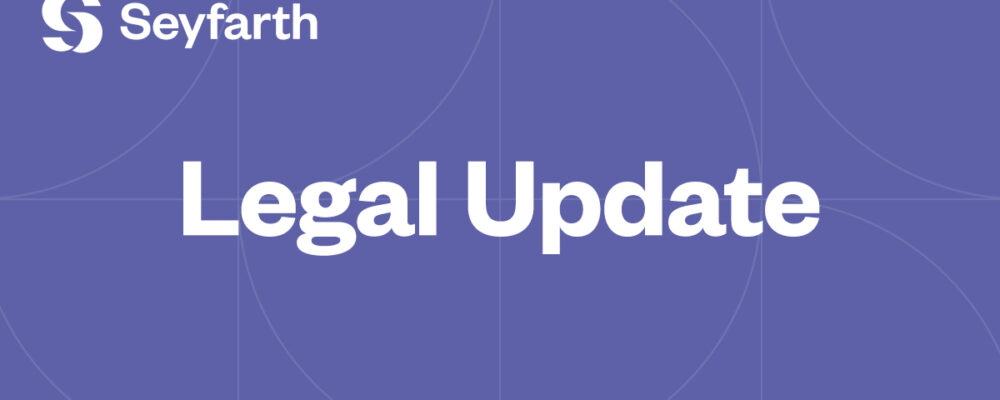Seyfarth Synopsis: Are you ready for it? The record-smashing icon, Taylor Swift, may have taken her tour to Europe, but that doesn’t stop new laws from cropping up back home. The Los Angeles County Board of Supervisors passed the Fair Work Week Ordinance on April 9, 2024, which is set to go into effect on July 1, 2025, for retail employers located in the unincorporated areas of Los Angeles County. But we’ve seen this remix: it closely tracks the City of Los Angeles’ Fair Work Week Ordinance.
Long Story Short
Fair Work Week Ordinances have cropped up in almost as many locations as Taylor Swift’s Eras tour, including Oregon, Chicago, New York City, Philadelphia, Seattle, and several California cities such as Berkeley, San Francisco, Emeryville, and Los Angeles. The Los Angeles County Fair Work Week Ordinance will be the first county-wide ordinance in California.
The Who’s Who of Who Is Covered
I think we’ve seen this film before. The “Retail Employers” definition in the Ordinance mirrors the definition in the LA City Fair Work Week Ordinance, which encompasses entities identified as retail businesses in the North American Industry Classification System (NAICS)’s retail trade categories, and subcategories 44 through 45, that employ at least 300 employees worldwide. Individuals employed by staffing agencies and certain subsidiaries and franchises count toward the 300-employee threshold.
Under the Ordinance, “Retail Employees” includes individuals who:
- Perform at least two hours of work within the unincorporated areas of Los Angeles County,
- Qualify for minimum wage under California law, and
- Are assigned a primary work location and duties that support retail operations (like retail stores or warehouses).
Don’t Make Employees Wait And Wonder If You’re Ever Coming Around
This Ordinance will require covered employers to provide estimates and advance notice of work schedules.
- Good Faith Scheduling Estimate. To avoid bad blood, employers must provide a good faith estimate of work schedules to prospective employees before hire (and include a Notice of Retail Employee’s Workweek Rights), and to current employees within 10 calendar days of a request.
- Advance Notice. Covered employees must receive their work schedule a fortnight, or 14 calendar days in advance of the work period, and they have a right to decline any hours not included in it. If an employer changes the work schedule after the 14-day period, it must have documented consent from impacted employees.
- Right To Speak Now About Schedule Changes. The Ordinance codifies employees’ right to request preferred hours, times, or locations of work. Employers are not obligated to grant these requests, but must accept or deny the requests in writing.
Predictability Pay We Know All Too Well
Just like the LA City Fair Work Week Ordinance, employees will be entitled to “predictability pay” for changes made to their work schedule within the notice period under certain circumstances. Employers will owe one hour of compensation at the regular rate of pay for any change to a scheduled date, time, or location that results in no loss of hours or results in adding more than 15 minutes of work.
Both the Ordinance and the LA City corollary require employers to pay half an employee’s regular rate of pay when an employer changes the start or end time of a shift resulting in a loss of more than 15 minutes. However, the Ordinance requires payment of this amount under several additional circumstances, including when (1) time is subtracted from a shift before or after the employee reports to work; (2) the employer changes the date of a shift; (3) the employer cancels a shift; or (4) the employer schedules the employee for an on-call shift if the employee is not called in.
The exceptions to predictability pay are the same under this Ordinance and the LA City Ordinance:
- Employee-initiated schedule changes;
- Employees who accept a schedule change due to another employee’s absence;
- Changes due for violating any law or policies;
- Work operations are compromised pursuant to law; or
- When employees accept additional hours or work extra hours that require payment of overtime.
Employers Must Stay Stay Stay With Current Employees
Employers must offer additional hours to current qualified employees at least 72 hours before hiring a new employee, contractor, or temporary hire (unless doing so would require the employer to pay overtime fees).
Blank Space Between Shifts
The Ordinance matches the LA City prohibition of employers scheduling employees to work shifts that start less than ten hours from an employee’s last shift without written consent and payment of time and a half for each hour of that subsequent shift.
Who Uses Typewriters, Anyway? – Posting and Notice Requirements
Employers must post the required Notice in a conspicuous place in English, Spanish, and any other language spoken by at least 10% of the employees at a workplace.
Employers must also maintain current and former employees’ records (including work schedules, copies of written offers to employers for additional work hours, and good faith estimate work schedules) for three years.
Penalties If You Do Something Bad
Employers who violate the Ordinance could be subject to penalties up to $500 per violation (and up to $1,000 for retaliating against an employee who complains of violations) payable to the employee. Unlike the LA City Ordinance, violations of this Ordinance do not accrue daily penalties. However, employers could be subject to daily administrative penalties up to $20,000 annually per violation per employee—with the exception of a retaliation violation, which has a maximum annual penalty and fine of $30,000 per employee.
Workplace Solutions
Retail employers in the unincorporated areas of Los Angeles County should closely examine their scheduling practices and record retention procedures to confirm they are ready to comply with this new law by July 2025. Covered employers should also ensure their payroll departments are ready to handle predictability pay. Unlike Taylor Swift, you don’t have to do it with a broken heart. If you have questions regarding compliance, please reach out to the authors or your favorite Seyfarth attorney.
Edited by Cathy Feldman and Coby Turner
“With approximately 900 lawyers across 17 offices, Seyfarth Shaw LLP provides advisory, litigation, and transactional legal services to clients worldwide.”
Please visit the firm link to site






